Our latest RIPE NCC Days event took place in Chișinău, Moldova from 18-19 June 2025. At the meeting, we heard from local community leaders and examined the landscape of the Internet in Moldova and its neighbours.
The RIPE NCC in Moldova
For the first time, RIPE NCC Days took place in Moldova, bringing together over 100 participants from 8 countries for two days of technical discussions, knowledge sharing and community building. Held in partnership with local stakeholders, the event offered a valuable platform to strengthen Moldova’s Internet infrastructure and promote regional collaboration.
Our last time in Chișinău was our Internet Measurement Day in 2023, and we previously looked into Moldova’s digital development in our 2022 Internet Country Report on Bulgaria, Moldova and Romania. We were excited to check in again with the Internet community in the country and see what’s changed since we were last here.
The event was hosted with the support of two key Moldovan organisations: the Asociaţia Obştească Comunitatea Internet, a civil society group dedicated to promoting Internet development and technical expertise, and the Serviciul Tehnologia Informației și Securitate Cibernetică (STISC), Moldova’s governmental authority responsible for national IT security and infrastructure policy. The event also had the RIPE NCC as a diamond sponsor and IT-LAB as a bronze sponsor.
Day 1: The local Internet
The Opening Plenary featured remarks from the RIPE NCC’s Gergana Petrova and Alex Semenyaka, alongside Sergiu Gaibu, Director of ANRCETI, Moldova’s national telecommunications regulator. Anatolie Golovco, Cybersecurity Expert in the Prime Minister’s Office, and Radu Vieru, Chief Technical Officer of STISC, emphasised the importance of cooperation between technical communities, governments and civil society. Alexei Marciuc, representing Comunitatea Internet, highlighted Moldova’s potential to become a regional digital hub.
A standout moment of the morning was the panel discussion on The Role of Internet Infrastructure in the Digital Era, moderated by Vahan Hovsepyan. Speakers from ICANN, STISC and ANRCETI discussed how resilient, secure and inclusive infrastructure is vital for Moldova’s digital growth.
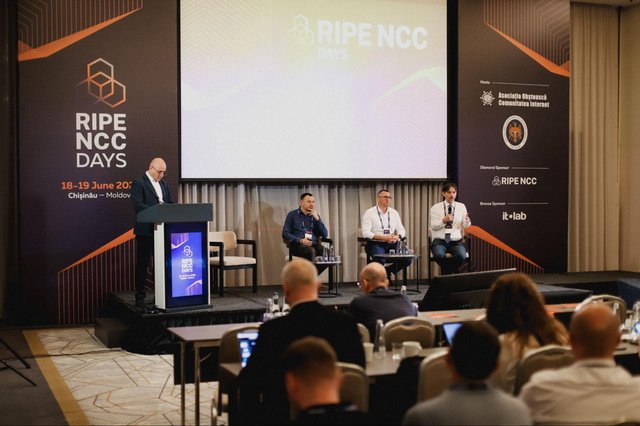
Next, there were several updates from the RIPE NCC. Following these, speakers explored specific aspects of the Internet in Moldova. Sofie Flensburg of the University of Copenhagen shared an overview of the country’s digital infrastructure and its interdependencies. Jelena Ćosić and Alex Semenyaka examined network resilience in the country:
The day wrapped up with a panel discussion exploring the development of Internet infrastructure and related technologies in Moldova.
Day 2: Broader challenges and opportunities
The second day was full of Internet measurements looking into the Internet landscape within the country and beyond.
Routing security in Moldova and neighbouring countries
Qasim Lone kicked things off by analysing the current state of regional routing security. This included looking into the deployment of Route Origin Authorisation (ROA) and Route Origin Validation (ROV), the two essential components of Resource Public Key Infrastructure (RPKI). A ROA is a digitally signed object that specifies which Autonomous System (AS) is authorised to originate a particular IP prefix. ROA creation is a critical first step toward enabling ROV, which allows networks to reject invalid BGP announcements.
Qasim and his team found that, overall, the ROA coverage in the region is quite high for IPv4 space. In June 2025, the ROA coverage (for IPv4) in Moldova was nearly 100%.
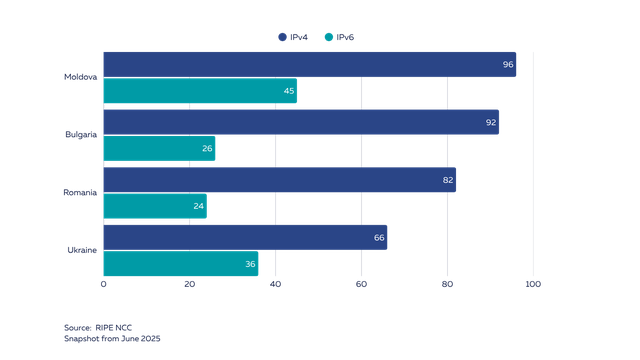
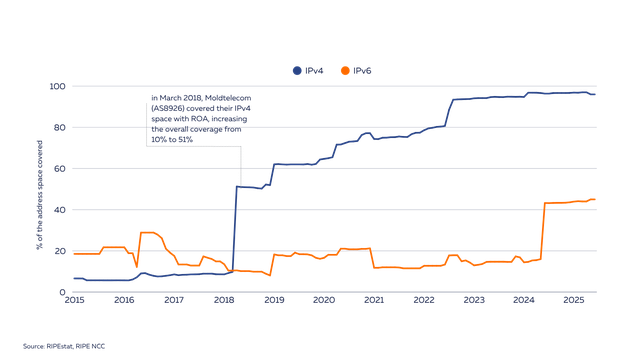
IPv4 ROA coverage has gradually increased for the past 10 years. There was a big spike in March 2018, when Moldtelecom (AS8926) covered their IPv4 space with ROA, increasing the overall coverage from 10% to 51%.
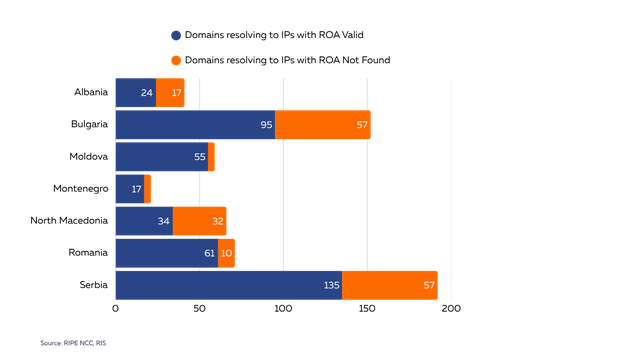
Government and public service domains form an essential part of national digital infrastructure, supporting critical services such as healthcare, education and public administration. Without ROAs in place, the IP address space associated with these domains is more vulnerable to routing incidents, including BGP hijacks and accidental misconfigurations.
To assess this exposure, the team analysed the ROA status of IP addresses that resolve from government and public service domains in Moldova and selected countries in the South East European region. IP addresses were categorised based on the RPKI validation state of their associated prefixes. If a prefix was marked as Invalid or Not-Found, and no more specific Valid ROA covered the address, it was considered at risk.
In Moldova, out of 59 domains analysed, only 4 resolved to IP addresses that were not covered by a valid ROA. This points to a relatively high level of ROA coverage for government-related services in the country. However, these are preliminary findings and should be interpreted with caution: the domain set is not exhaustive, and no evaluation was made of the specific roles or criticality of the services hosted under these domains. Learn more about the methodology in Qasim’s recent article on RIPE Labs.
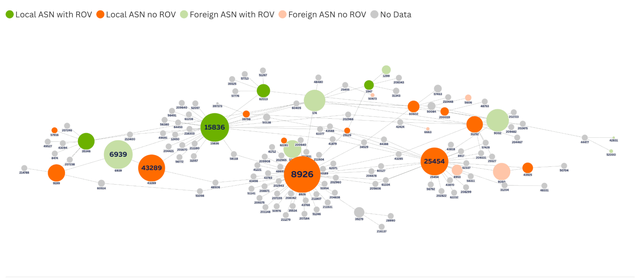
You can view an interactive version of the chart on Flourish.
After creating ROAs, the critical next step in strengthening RPKI-based routing security is deploying ROV. ROV ensures that BGP route announcements comply with the authorisations specified in ROAs, effectively mitigating both malicious prefix hijacks and accidental misconfigurations.
The team used RoVISTA, a tool that assigns scores based on the ability of an AS to reach prefixes marked as RPKI-invalid, to assess ROV deployment in the region.
This graph shows the network centrality using AS Hegemony methodology. This approach measures how essential each AS is to a country's routing infrastructure. In this visualisation, the size of each AS corresponds to its routing centrality within the Moldovan network. The colours suggest whether the AS Number (ASN) is Moldovan (local) or foreign, and whether this ASN deploys ROV or not. For the ASNs in grey colour, the data on their ROV deployment has not been found.
Some highly central local ASes like AS15836 and AS35346 appear to filter invalids, suggesting possible ROV enforcement either by them or upstream providers. However, several other key ASes, such as AS8926 and AS25454, do not show evidence of ROV filtering, which strongly suggests a lack of ROV deployment and exposes the routing system to potential risks.
While initial signs of ROV filtering among central ASes are encouraging, the absence of ROV among other critical networks highlights a significant vulnerability. Promoting ROV adoption across these influential ASes is essential for strengthening Moldova’s overall routing security.
Network measurements and trends
Following this deep dive, Alex Semenyaka showcased how RIPE Atlas helps in monitoring Moldova’s connectivity. Alex found that although the research results show routes within Moldova are generally quite local, there are some extreme exceptions (for example, a route going from Moldova to Romania and Germany before returning to Moldova). The situation with external connectivity is somewhat worse, with a significant share of suboptimal routes. One packet, between two nodes 17 km apart in Romania and Moldova, travelled via London, Hamburg, Prague, Bratislava, Budapest, Bucharest, Odessa and Chișinău. This means there is definitely some work to be done in optimising traffic routes. Alex noted that his research was conducted using simple means, so it can be easily (and regularly) reproduced by Internet stakeholders in Moldova.
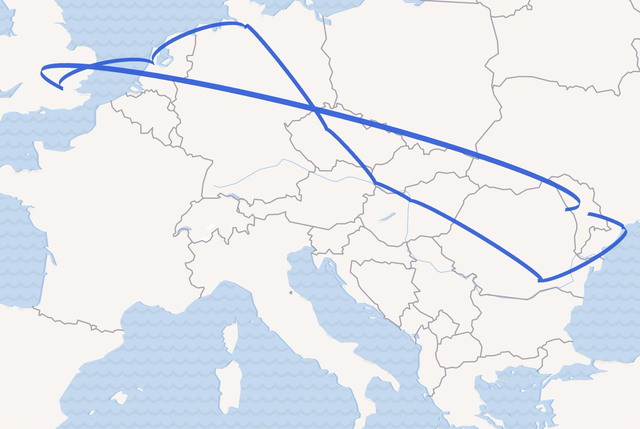
On the same theme, Emile Aben presented an analysis of submarine cable cuts in the Baltic Sea, illustrating the value of RIPE Atlas measurements in tracking such incidents. Ties de Kock showed how to use RIPEstat for routing insights.
Broadening the discussion, Jen Linkova from Google shared insights about transitioning to IPv6, and Mikhail Klimarov of the Internet Protection Society explored the concept of Internet fragmentation. We concluded the event with a lively, open discussion with attendees about the RIPE community and local needs in the country.
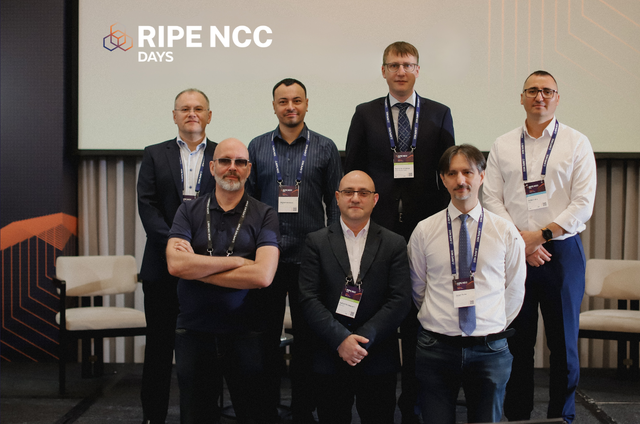
We want to once again thank our hosts, Asociaţia Obştească Comunitatea Internet and STISC, and our bronze sponsor, IT-LAB, for their support in this event. And we hope to see our Moldovan community members again soon at RIPE 91 in Bucharest, Romania!
To see more of this event, watch the recordings of the presentations on our YouTube channel (available in English, Romanian and Russian) and take a look at the photo gallery.

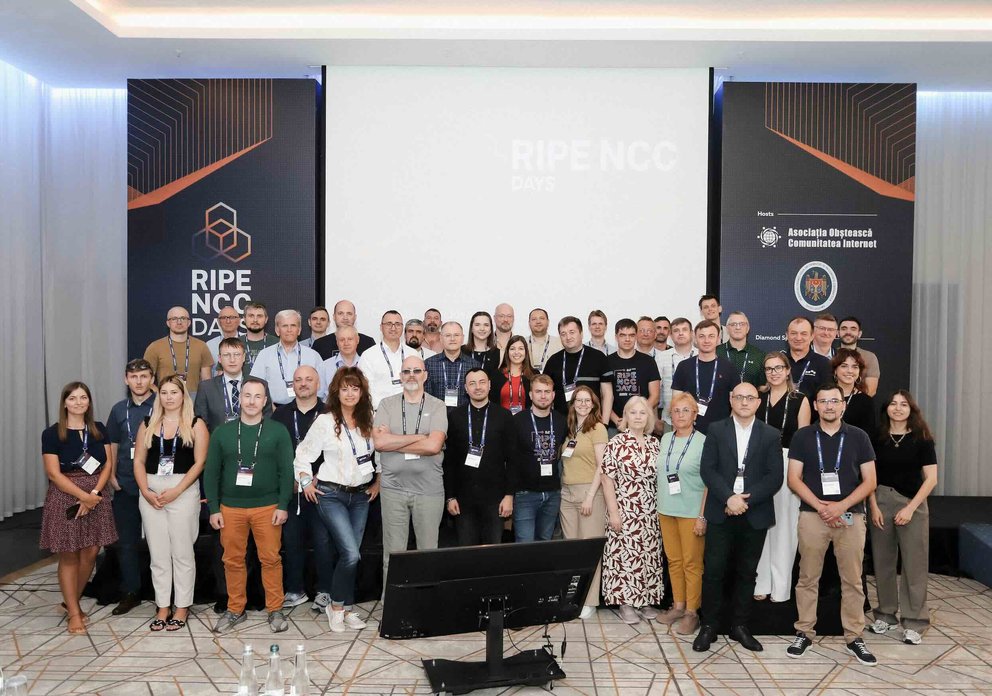
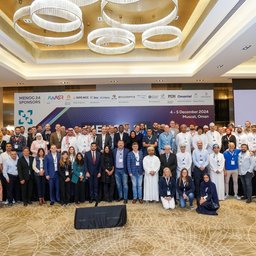


Comments 0